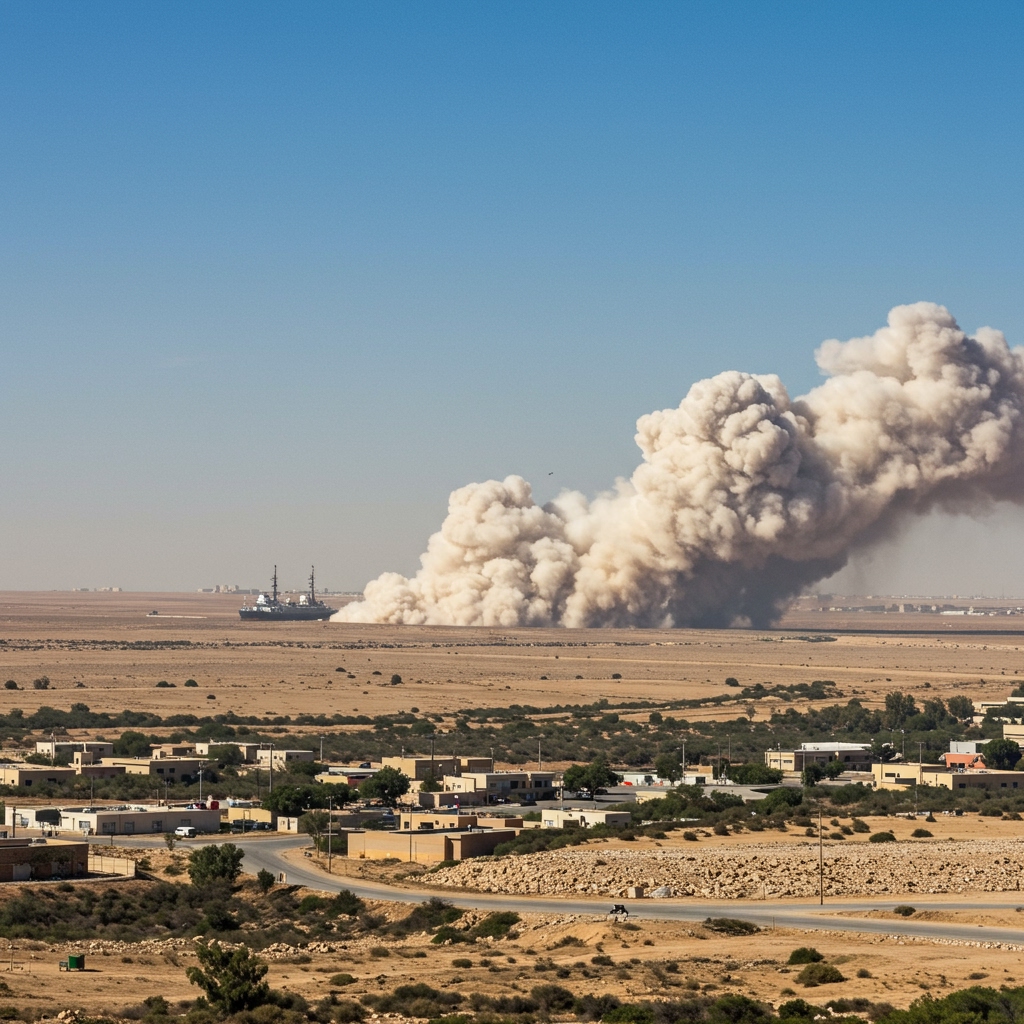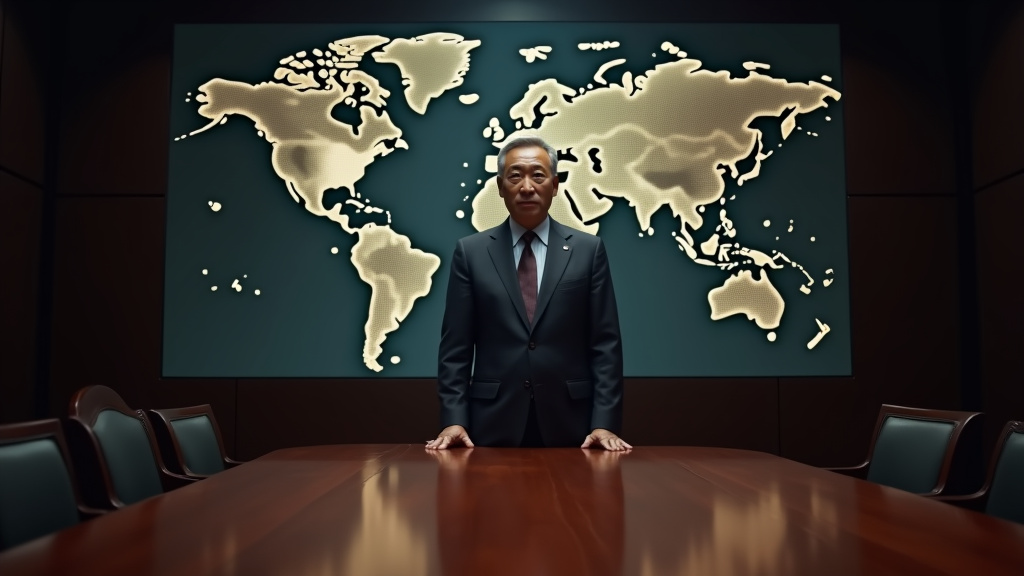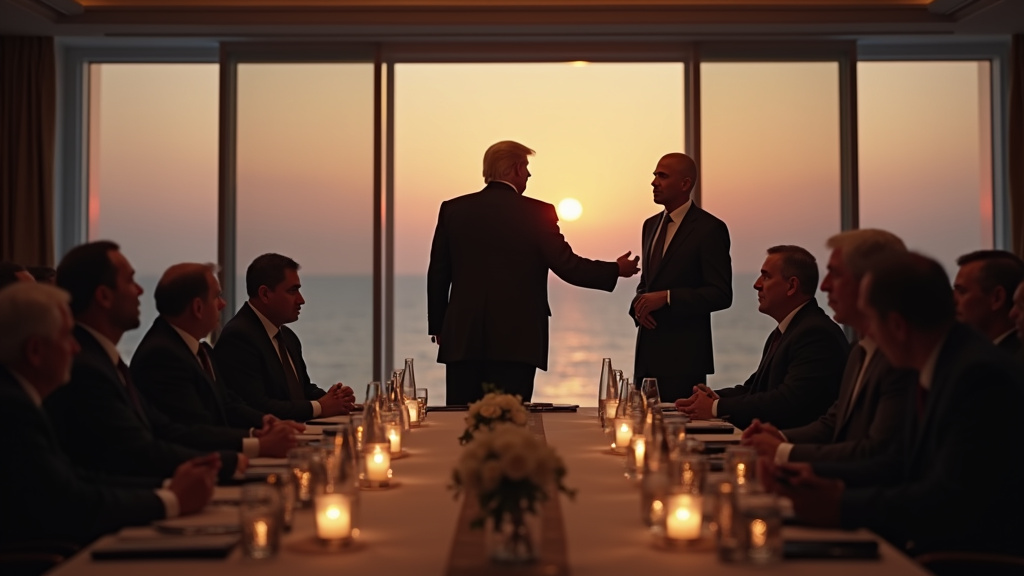Jerusalem/Tehran – Tensions in the Middle East dramatically escalated on June 19, 2025, as Iran launched a significant missile barrage against targets in Israel, prompting a swift and potentially critical response from Israeli forces, who are reported to have struck an Iranian nuclear facility.
The exchange marks a dangerous intensification of the ongoing hostilities, raising fears of wider conflict and drawing urgent calls for de-escalation from international actors.
Escalation on June 19, 2025
The day began with reports of Iranian missiles impacting multiple locations across central and southern Israel. Officials confirmed serious damage at four sites. Among the locations struck was the Soroka hospital, a major medical center in Beersheba, underscoring the severity and indiscriminate nature of the attacks.
The impact of the barrage resulted in a significant number of casualties. Israel’s emergency rescue service confirmed that the number of people injured from Iran’s missile barrage in Israel rose to 47. Of these, three were listed in serious condition and two in moderate condition. Additionally, eighteen people were injured while rushing to shelters during the attacks.
Iran’s official IRNA news agency offered a specific justification for the strikes, claiming that the “main target” of their missile attack was an Israeli military command and intelligence site located near Soroka hospital. This claim, however, does not mitigate the widespread damage reported, particularly at the hospital itself.
Israel Reportedly Strikes Iranian Nuclear Site
In rapid retaliation, Israeli forces are reported to have conducted a strike on Iranian territory. The target, according to initial reports, was Iran’s Arak heavy water nuclear reactor, specifically targeting the Shahid Khondab complex and its research reactor. This facility is a key component of Iran’s nuclear program, though Iranian officials maintain its purpose is purely civilian and for research.
The Atomic Energy Organization of Iran swiftly condemned the reported Israeli attack, stating unequivocally that it violated international laws prohibiting attacks on nuclear facilities. Attacks on nuclear infrastructure are considered particularly grave due to the potential for radiological contamination and the inherent risks associated with damaging such sites, even if non-weaponized.
Broader Context of Rising Casualties
The events of June 19, 2025, unfolded within a broader context of already elevated tensions and a rising human cost. The death toll from previous Israeli attacks on Iran has reportedly climbed to more than 240, a figure that tragically includes 70 women and children. This grim statistic highlights the devastating impact the ongoing conflict is having on civilian populations on both sides.
Official Reactions and International Concern
The targeting of the Soroka hospital drew sharp condemnation from Israeli officials. Israeli Deputy Foreign Minister Sharren Haskel and Israeli President Isaac Herzog both publicly denounced the damage to the hospital, calling vulnerable hospital patients “targets of Iran’s missile attacks on Israeli civilians”. Their statements underscored the profound outrage within Israel regarding the perceived targeting of a civilian healthcare facility.
Internationally, the escalation prompted urgent reactions. US President Donald Trump stated that he is still considering options regarding United States military intervention in the escalating hostilities. His remarks signal the potential for direct US involvement should the situation deteriorate further, adding another layer of complexity to the crisis.
Earlier, Iran’s Supreme Leader Ayatollah Ali Khamenei had issued a stern warning to the US, stating that any strikes on its territory would have “serious irreparable consequences”. This exchange of threats between Washington and Tehran highlights the precarious regional balance and the potential for miscalculation.
The unfolding crisis has also elicited concern from other regional and global powers. Iraq’s top Shia leader Grand Ayatollah Ali al-Sistani warned of “dire consequences on the region” if Iran’s “supreme religious and political leadership” are targeted, indicating fears of instability spreading throughout the Middle East.
China has taken concrete steps in response to the escalating conflict, evacuating over 1,600 of its citizens from Iran and hundreds from Israel. China’s foreign ministry spokesman Guo Jiakun reiterated Beijing’s position, urging de-escalation and opposing the use or threat of force in international relations, advocating for diplomatic solutions.
Outlook and Future Tensions
The events of June 19, 2025, mark a significant and worrying turning point in the Iran-Israel conflict, characterized by direct strikes on sensitive civilian and potentially nuclear targets. The reported attack on the Arak heavy water nuclear reactor carries particular weight due to its implications for nuclear non-proliferation concerns and the potential for severe environmental and humanitarian consequences. As both sides exchange blows and international powers weigh their responses, the immediate outlook for the region remains fraught with the risk of further, potentially catastrophic, escalation.





